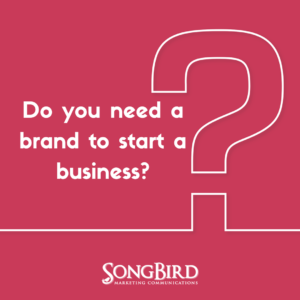Why should consumer brands have all the virtual fun?
While many big brands test virtual storefronts, NFT drops and other metaverse activations, what does this mean for B2B marketers? The B2B playbook will evolve to include some version of the same strategies. After all, B2B marketers have been adapting all kinds of consumer marketing channels, from video to social, even using B2B influencers.
Here are some metaverse entry points where B2B organizations can become early adopters.
The B2B metaverse. As marketers and agencies make inroads in the metaverse, more business use cases will develop side-by-side. Chances are, many of your business prospects are already using some of these channels.
“While there’s no single, streamlined version of the metaverse today, tech companies are investing big-time in the infrastructure to build out their visions,” said Chris Savage, CEO and cofounder of video and podcast hosting platform Wistia. “B2C and B2B brands, plus early adopters of virtual reality, augmented reality and cryptocurrencies, are seeing massive potential and are experimenting with extended reality technologies that already exist.”
No ‘metaverse stack,’ no problem. “The tech that will be the foundation of the metaverse – including immersive games, VR headsets, 3D meeting rooms and more – is already being used for business, regardless of the fact that there’s no ‘metaverse martech stack’ at this time,” Savage said.
“I’ve personally attended meetings using a virtual reality headset and found the experience to be the perfect ‘third realm’ between the home and the office,” he added.
Metaverse communities. Business marketing is community-focused through trade shows and other industry events. During the pandemic, much of this community building went entirely virtual, and now it’s a mixed bag of virtual, on-demand and hybrid interactions.
As more employees, including key business contacts, began working remotely, they were also more connected digitally through the technology they used to get their work done. This means there’s a wider audience that B2B marketers can reach through digital channels, including on the metaverse.
“B2B marketers should think about how to utilize the metaverse to grow their business and reach wider audiences,” said Savage. “Customer content consumption has changed and if businesses aren’t where their customers are spending time, they’re losing out. While only a small fraction of customers are in the metaverse now, this will change in the future. B2B marketers should be open to the metaverse as a new channel to connect with their audiences – such as using it for virtual events and building communities.”
Elevating metaverse experiences. As the world opens back up, the marketing landscape is more dynamic than ever with its complex blend of in-person and digital experiences. Marketers can use the metaverse to connect and improve these experiences.
In the consumer realm, brand fans might acquire a branded NFT through a virtual community like Roblox. But if they keep that NFT in a virtual wallet, they can flash it from their phone at a brick-and-mortar store and gain special access there. In a similar way, the metaverse could merge experiences for business customers and prospects.
“Virtual events are here to stay, and the metaverse will simply elevate these experiences by combining the best of virtual – cost-effective, accessible, flexible – with the best of in-person – interactive, collaborative, social,” said Savage. “Some events are better suited to 3D than others, but marketers can reach wider audiences by embracing new and creative ways to connect with customers.
Start small. How should B2B marketers start a metaverse strategy from scratch?
“My advice is to start small,” said Savage. “Because the metaverse is not yet fully understood or utilized, B2B marketers can attend metaverse events, meet with event coordinators in this space and experiment with existing extended reality platforms and tech to get inspired.”
He added, “There will be technical hurdles to throwing events in the metaverse, such as hardware and security, but the benefits will outweigh the risks for brands who approach the metaverse strategically as a marketing tool.”
Why we care. Though it’s still early stages, the metaverse has the potential to disrupt traditional marketing channels. Even if it’s not at the scale of what e-commerce did to uproot traditional retail, the lesson is that in order to remain competitive, marketers at consumer brands, as well as at B2B orgs, should at least plant a flag in the metaverse.
With major martech players like Salesforce providing metaverse-related services, there’s a good chance your competition is already building out their own metaverse strategy.
The post How B2B marketers can leverage the metaverse appeared first on MarTech.
MarTech(24)
Report Post






